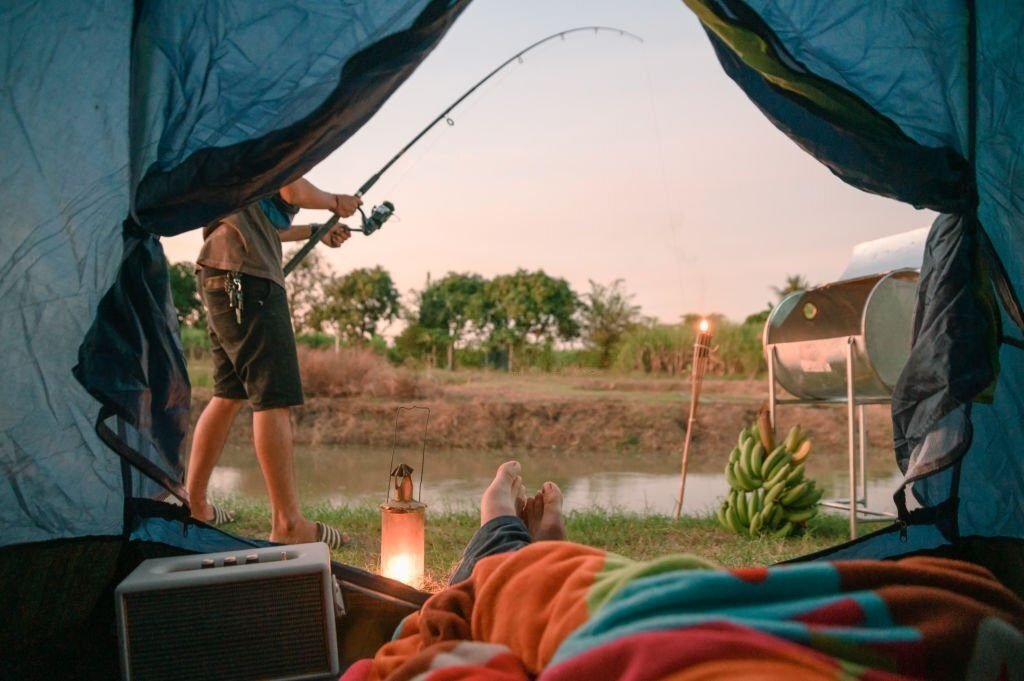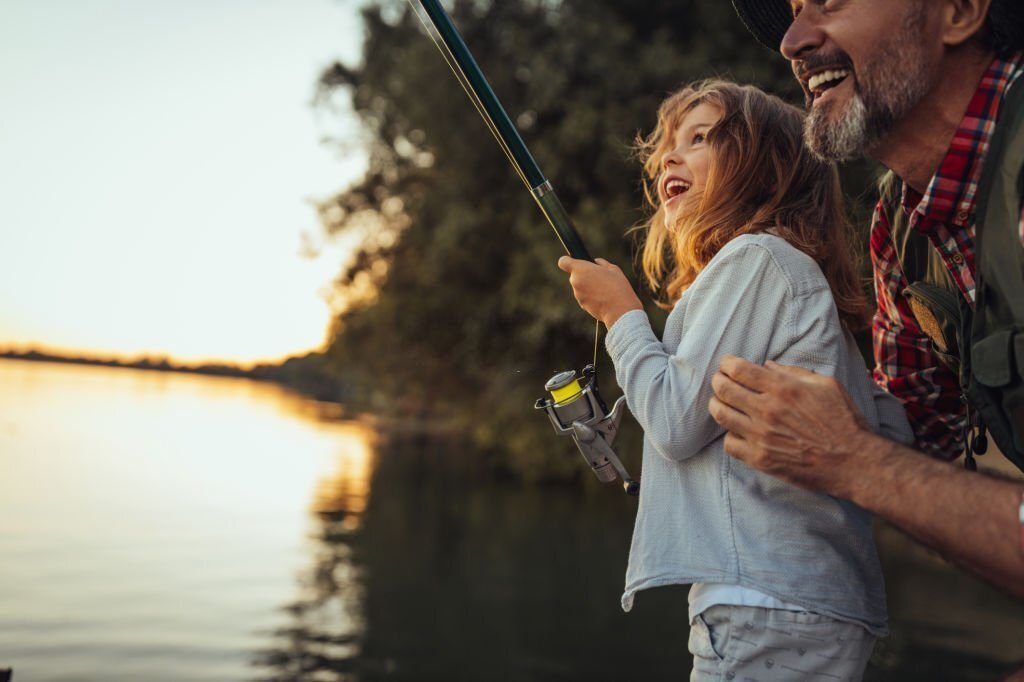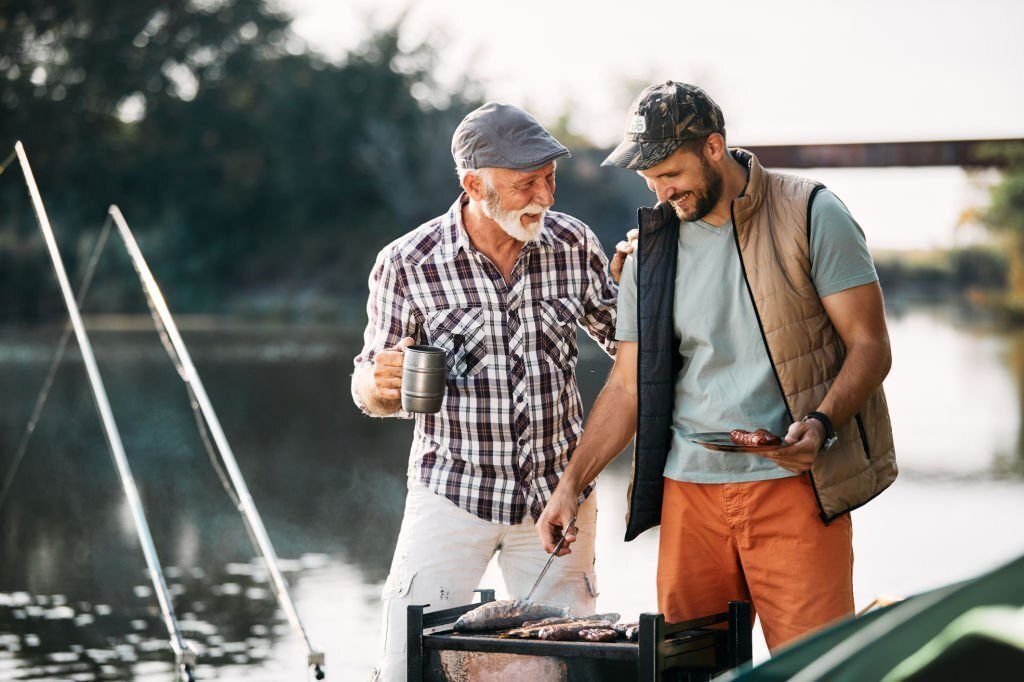Ready to go on your first fishing trip?
Fishing can be an enjoyable and rewarding experience, but it's important to know what you're doing before heading out. That's why we put together this list of 10 tips for a successful first-time fishing trip.

Follow these tips, and you'll be catching fish like a pro in no time!
Before we get into our ten tips, we need to start with the ground rules.
Before You Wet a Line
Before making your first cast, you need to purchase a fishing license. Fishing licenses can be purchased by using this resource, and the rules and requirements for each license will vary depending on where you live.
When you buy a fishing license, not only are you adhering to the law, but you are also supporting conservation efforts and helping to provide the opportunities to access public fishing areas and parks, hiking trails, and other natural areas. Fishing licenses are not expensive and can be purchased at most local bait and tackle shops while gathering the essential gear you will need.
Once you have a fishing license in hand, it's time to consider a few things before heading out.

10 Tips to Consider
1. Do your research.
Before you head out on your fishing trip, take the time to do some research. Familiarize yourself with the rules and regulations that apply to fishing in your area, such as whether or not there are size or bag limits for certain types of fish and where you're allowed to fish.
You should also research which fish are in season and which type of bait or lure will be most effective for the fish you're hoping to catch. Doing your research ahead of time will help you make the most of your trip and give you a better chance of success.
2. Choose the correct location.
Not all fishing spots are created equal. Some areas will be better than others, depending on the time of year, the type of fish you're hoping to catch, and the weather conditions.
Do some research to find out where the best fishing spots are in your area, and make sure you have a backup plan in case your first choice is crowded or not producing any bites.
3. Bring the right gear and supplies.
To have a successful fishing trip, you need to bring some basic supplies. This includes items such as a fishing rod and reel, tackle box, bait (live or artificial), line for your reel, and a net for larger fish that you want to keep.
You may also want to bring along some additional items such as waders or hip boots if you're planning on wading in the water, a cooler to keep your catch fresh, and sunscreen and insect repellent to protect you from the elements.

4. Dress for success.
What you wear on your fishing trip can be as important as what you bring. Clothes that are too loose or bulky can make it challenging to move around and cast your line, while too tight clothes can restrict your movement and be uncomfortable.
Opt for comfortable and breathable clothing, such as light-weight pants or shorts, a t-shirt or button-down shirt, and a hat or baseball cap to protect you from the sun.
5. Be prepared for the weather.
Mother Nature can be unpredictable, so it's essential to be prepared for whatever she throws your way. Check the weather forecast before you head out and dress accordingly.
If the weather might turn sour, consider delaying or rescheduling your trip. If you're not able to do that, make sure you have a plan in place for dealing with the weather, such as bringing extra layers of clothing and rain gear if it looks like it might rain.
6. Don't be afraid to ask for help.
Fishing can be intimidating for a beginner, but don't be afraid to ask questions if you need help. Most fishing experts are happy to offer advice on how to be successful, whether it's helping you read the conditions or choosing bait that is most likely to catch the fish you want.
Most fishermen enjoy conversation and love being asked, "Any luck?" By starting a conversation with a fellow fisherman, you can open up the door to practical tips for that specific area.
7. Be aware of your surroundings.
When you're out in nature, it's essential to be aware of your surroundings. This means being mindful of the wildlife present and the terrain and conditions you are walking or wading through.
If you see a sign of danger, such as an aggressive animal or a body of water that seems too deep or swift, it's best to err on the side of caution and avoid the area altogether.

8. Don't forget to pack a lunch.
Fishing can be a fun but tiring activity, so it's essential to have enough food and drink to keep you going for the entire day. Pack a lunch high in protein, such as sandwiches made with tuna or chicken, and pack some fruit or granola bars to snack on throughout the day.
9. Have fun!
Above all else, remember to have fun when you head out on your first fishing trip. Even if you don't catch anything, being out in nature and enjoying the fresh air will be a memorable experience. And who knows – you may just get hooked on fishing!
10. Keep it clean.
Before you leave your fishing spot, clean up any trash or leftover bait that might be left behind. You should also dispose of any waste properly, such as fishing lines or bait buckets. Not only is this good for the environment – it will also help keep your favorite spots open to future generations of anglers.
Final Thoughts
If you follow these tips, you're sure to have a successful first-time fishing trip and hopefully catch plenty of fish!
Just remember to keep it simple and not overwhelm yourself by trying to stock up on unnecessary gear. You don't need a fish finder or that $300 conventional reel for your first time. Pick up a Shakespeare combo from your local Walmart and GO FISHING.
Tight lines!
